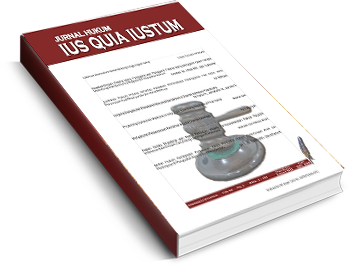Main Article Content
Abstract
Corruption Law should arrange for replacement of the convicted criminal money to be paid to the state. Legally if the convicted person is not able to reimburse the state, it will be replaced with imprisonment. Substitute criminal restitution imposed is not proportional to the amount of money obtained by the convict from the state and in addition, there is a wide disparity of restitution between many convicts. This study examines, first, what kind of additional criminal punishment in the form of payment of compensation which can protect the economic rights of the people? Second, how is the concept of proportionality (proportionality) should be applied for criminal compensation against the accused of corruption in the future? This study is normative juridicial, which uses methods of comparative law and conceptual. The results found that: first, the payment of compensation in practice does not protect the lost economic rights of the people through the passage of time until the decision is legally enforceable; payment of compensation is based only on the amount that the defendant obtained as proceeds of corruption. Secondly, the concept of proportionality/ proportionality substitute for criminal compensation can be applied with Jurimetri approach.
Keywords
Article Details
Authors who publish with this journal agree to the following terms:
a. Authors retain copyright and grant the journal right of first publication with the work simultaneously licensed under a Creative Commons Attribution License that allows others to share the work with an acknowledgement of the work's authorship and initial publication in this journal.
b. Authors are able to enter into separate, additional contractual arrangements for the non-exclusive distribution of the journal's published version of the work (e.g., post it to an institutional repository or publish it in a book), with an acknowledgement of its initial publication in this journal.




